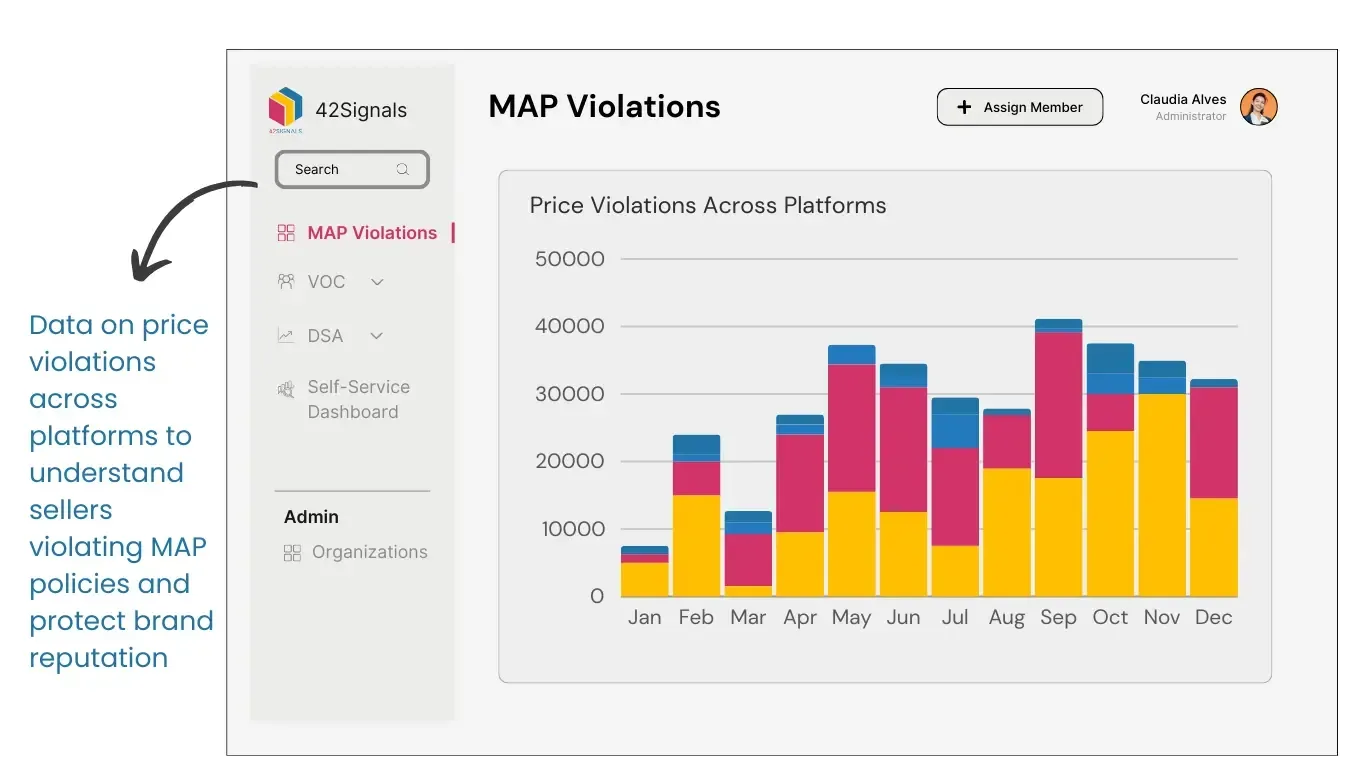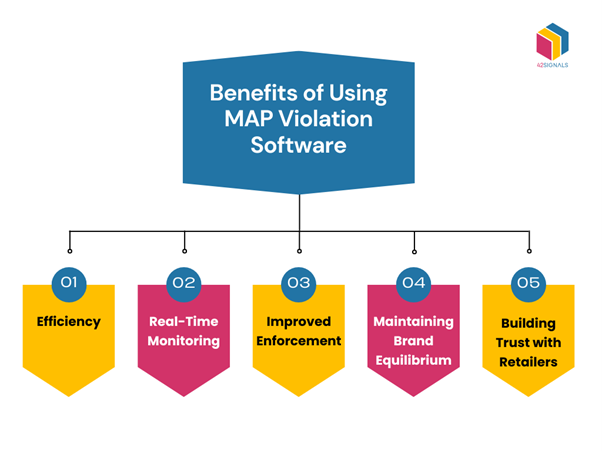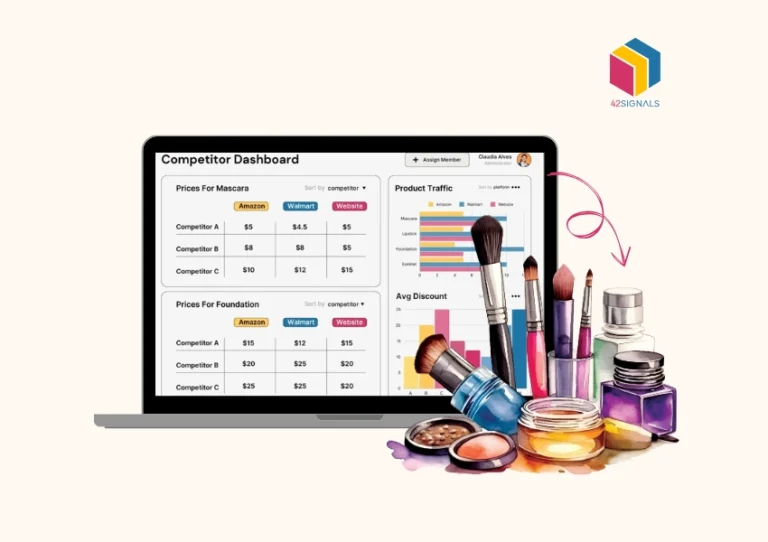Every brand endeavors to maintain its reputation and product value in the market. An essential mechanism in achieving this goal is the Minimum Advertised Price (MAP). MAP serves as the lowest price that retailers can advertise for a product, thus ensuring that the product’s value doesn’t erode in consumers’ eyes.
Understanding MAP Violations
MAP pricing violation occurs when a retailer advertises or lists a product below the manufacturer’s stipulated minimum advertised price.
Such violations can dilute the brand’s value, lead to unfair competition, and cause conflicts between retailers. Consequently, it becomes challenging for the brand to maintain its premium image, which might have taken years to build.
What is an Example of a Minimum Advertised Price
Imagine a luxury watch brand that has set a MAP of $1,000. If Retailer A advertises this watch at $950 while other retailers respect the MAP, it can trigger a price war, eventually devaluing the brand.

Neglecting MAP guidelines can result in loss of sales for compliant retailers, decreased profit margins, and potential brand erosion.
Is it Illegal to Charge More than the Advertised Price?
MAP pertains to advertised prices, not the actual sale price. While retailers can sell a product below the MAP, advertising below this price can result in repercussions from the manufacturer. However, selling above the advertised price might breach consumer protection laws.
Overcharging can lead to mistrust, legal penalties, and damage to a brand’s reputation. Consumers are entitled to accurate and transparent pricing.
Key Solutions to Prevent MAP Pricing Violation

Image Source: 42Signals
Active Monitoring and Price Tracking Tools
Brands can employ sophisticated monitoring tools that scan websites, online marketplaces, and social media for advertised prices. Such tools can detect deviations in real time, enabling brands to take immediate corrective action.
Setting Clear Agreements with Retail Partners
Ambiguity is the enemy of compliance. It’s essential that brands have clear, explicit, and detailed agreements with all retail partners regarding MAP policies. Such agreements should include the MAP value, the implications of violations, and the steps to be taken if a violation occurs.
Regular Training and Education for Retailers on MAP Policies
Sometimes, violations occur due to a lack of understanding or ignorance. To avoid this, brands can offer periodic training sessions, workshops, or webinars focusing on MAP policies. Through these educational efforts, retail partners can better grasp the reasoning behind MAP, its significance, and the mutual benefits of compliance.
Implementing Penalties and Rewards for Compliance and Violations
A system of carrots and sticks can be highly effective. Retailers who consistently adhere to MAP policies can be rewarded with incentives such as additional discounts, marketing support, or priority in product releases. On the other hand, violators can face penalties ranging from reduced discounts to partnership termination.
So, how can you detect or recognize if MAP violations occur?
Inconsistent Pricing across Platforms and Retailers:
If a product is advertised at varying prices across different platforms or by different retailers, it’s a clear indication that there might be a violation. Regular market scans can help identify these disparities.
Complaints from Loyal Retailers about Unfair Pricing:
Your long-term, compliant retailers are your eyes and ears in the market. If they raise concerns about competitors undercutting prices, it’s essential to investigate promptly. Such feedback is invaluable in maintaining a level playing field.
Fluctuating Sales Figures and Altered Brand Perception:
A sudden drop in sales from compliant retailers or a noticeable shift in how consumers perceive your brand can be indirect indicators of MAP violations. Regularly reviewing sales data and market sentiment can provide insights.
Leveraging Technology in Preventing MAP Violations

Image Source: PriceMole
1. Automated Price Monitoring Software:
Such software solutions, like 42Signals can scan thousands of web pages in minutes, providing real-time data on advertised prices. With automated alerts, brands can swiftly address potential violations, ensuring minimal damage.
2. AI-driven Alerts for Possible MAP Breaches:
With advancements in artificial intelligence, predictive algorithms can now forecast possible future violations based on historical data and market trends. Such proactive alerts can help brands prepare and act before a violation becomes widespread.
3. Data Analytics for In-depth MAP Compliance Overview:
By integrating data analytics, brands can get a comprehensive view of MAP adherence. Visualization tools can highlight patterns, frequent violators, and high-risk products or regions. This data-driven approach can guide strategic decisions, resource allocation, and targeted interventions.
Conclusion
The importance of ensuring consistent pricing for brand empowerment and trust-building must be addressed.
A proactive approach, leveraging technology, and fostering a clear understanding among retail partners is vital. In an age where information is instantly accessible, maintaining the integrity of a brand’s pricing is integral to its success.
Contact us for a free demo at sales@42signals.com







